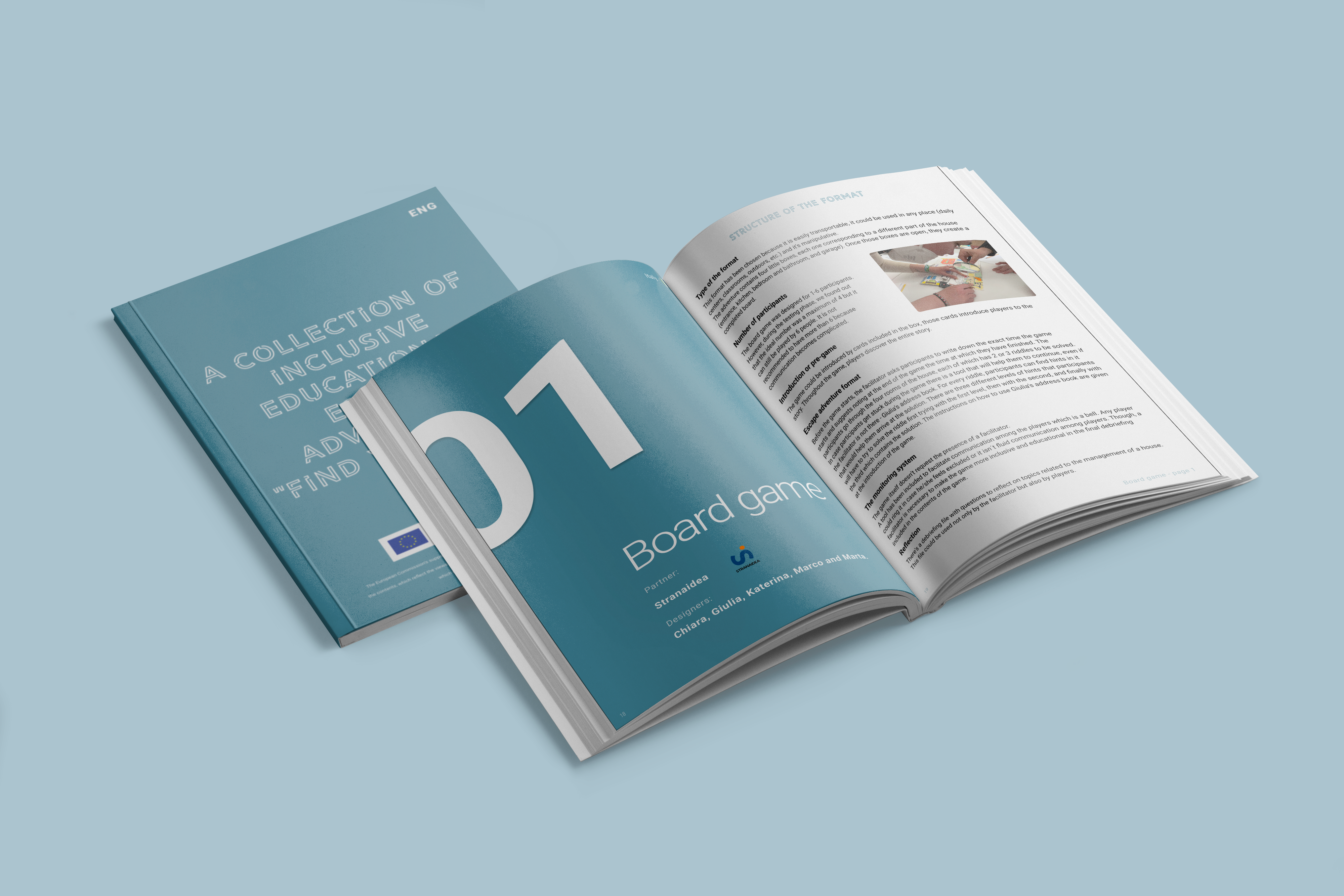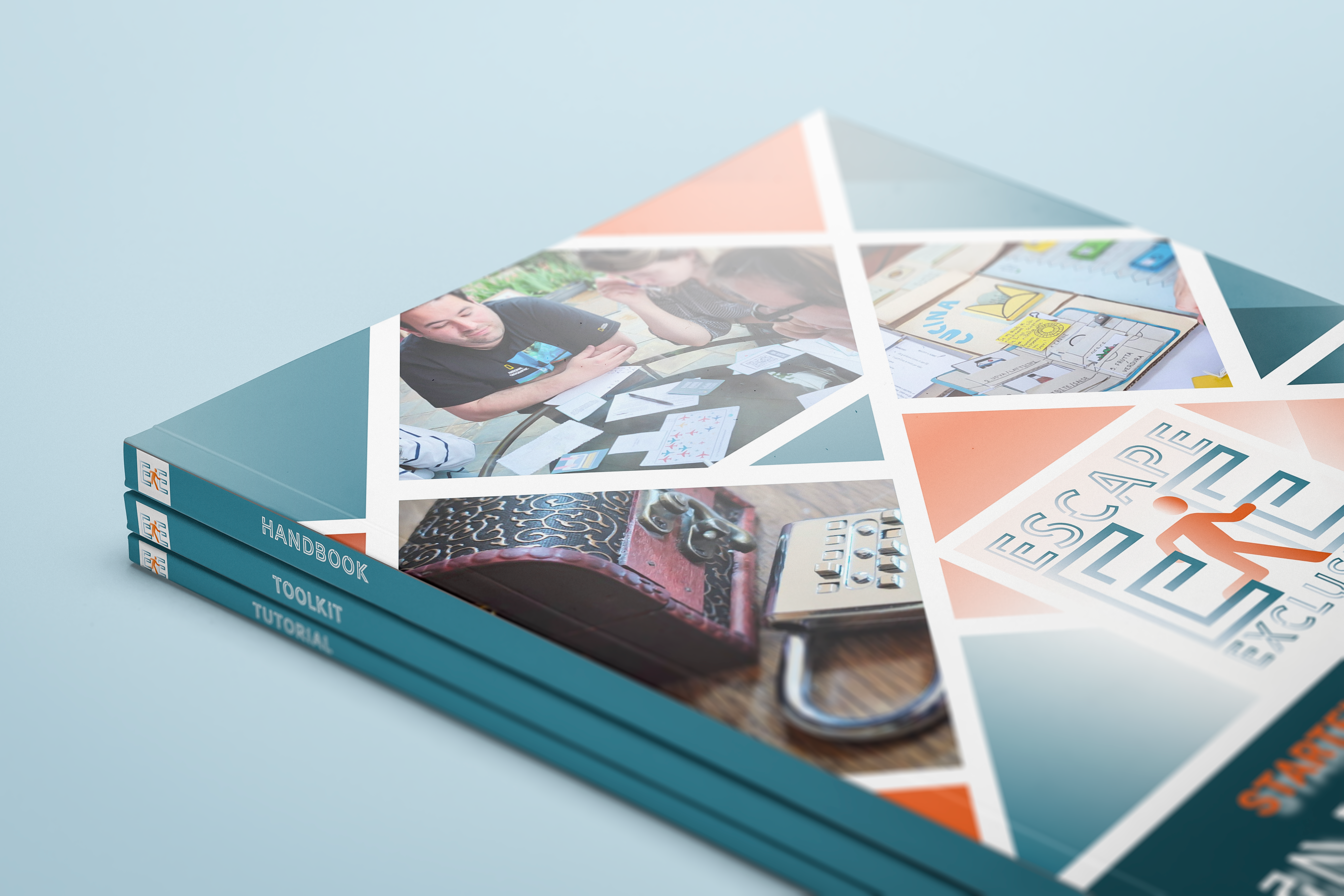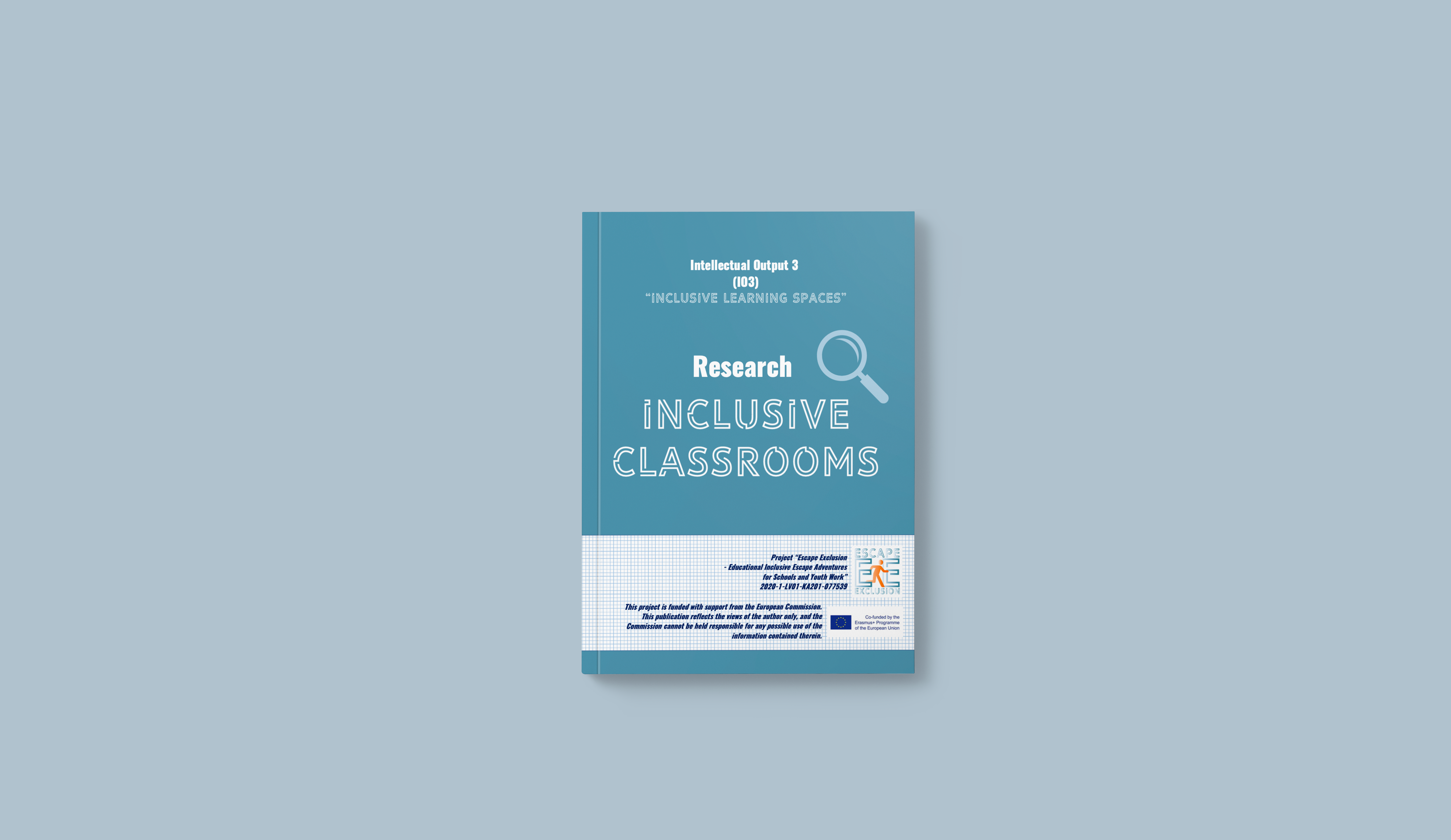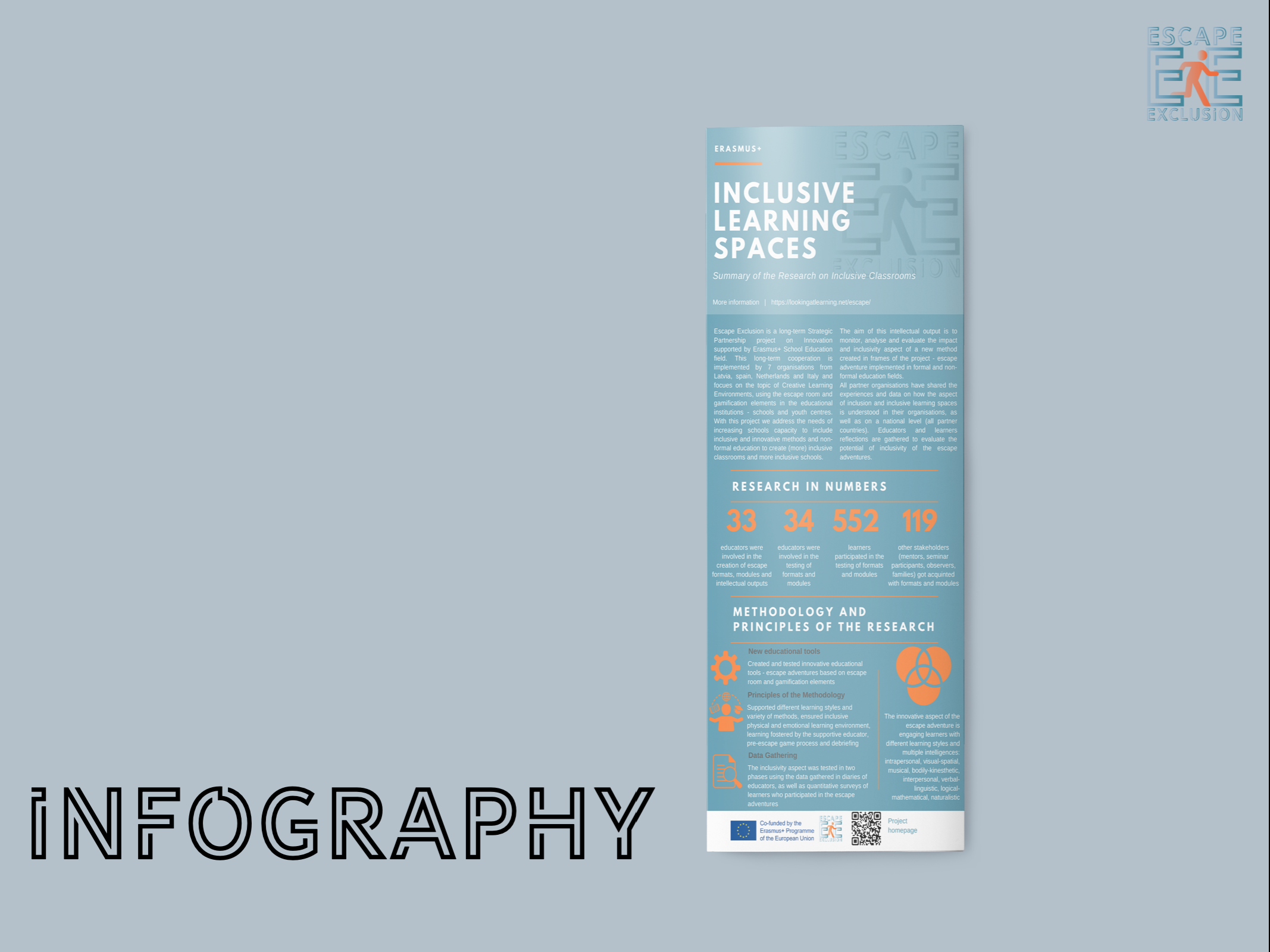Materials
TOOLBOX
STARTER KIT
This Starter Kit ‘INS & OUTS’ focuses on content development for inclusive escape adventures and is designed to support educators to use them and develop inclusive learning environments. The Starter kit explains how to create practical escape adventures and how to ensure that they are inclusive and educational.
Starter kit is composed by 4 parts:
- Handbook includes information about the project and our concepts of escape adventures, games in education, inclusion, and ownership of learners.
- Toolkit includes 8 fully developed copy-past escape adventure modules on Inclusion, like loneliness, self-exclusion, inclusion, autonomy, etc. These modules can be used and printed in various educational contexts.
- Tutorial contains a step-by-step design process of educational escape adventures with elements, like structure, design, game flow, resources and supporting the learning process.
- Glossary explains the way we understand and use the wordings and the concepts that we use.
RESEARCH & INFOGRAPHICS
“Inclusive learning Spaces” research “Inclusive Classrooms
Introduction
IO3 aim was MONITOR, ANALYSE and EVALUATE: The impact of educational escape adventure in formal and non-formal educational fields. For understanding which elements of escape adventure support the inclusion process in learning environment.
Because we wanted create educational escape adventures as profoundly inclusive learning experience and be as example on how formal and non-formal education institutions can work together for a COMMON AIM.
Our common aim was to analyse how leisure time activity (escape room) can be transformed: as educational tool and as inclusive educational tool. Research target group was two testing phase users – teachers,
youth workers, youngsters, learners, volunteers, social workers, parents.
Methodology
Diaries for educators who will create and implemented educational escape adventures (moduls) in local realities for getting reflection of experience and analyse who to change for formats and moduls creation.
Questionnaires for participants who will test (another teachers, youth workers, young people, volunteers, authorities) directly after escape adventures or in the end of testing all escape adventures. Questionnaires was prepared in electronical and paper format
Infographics






